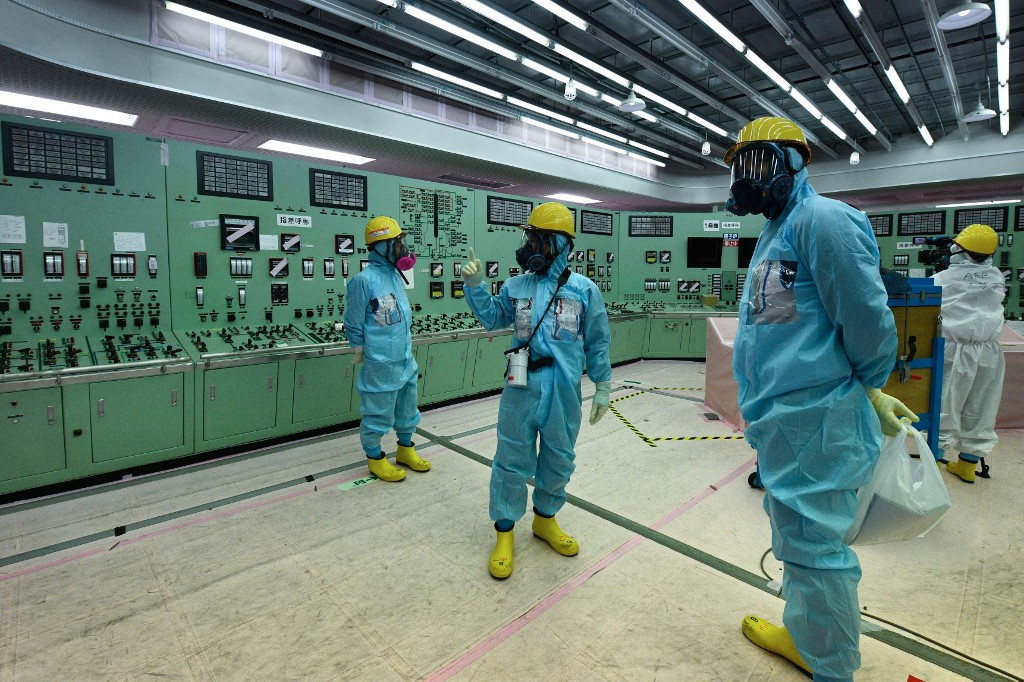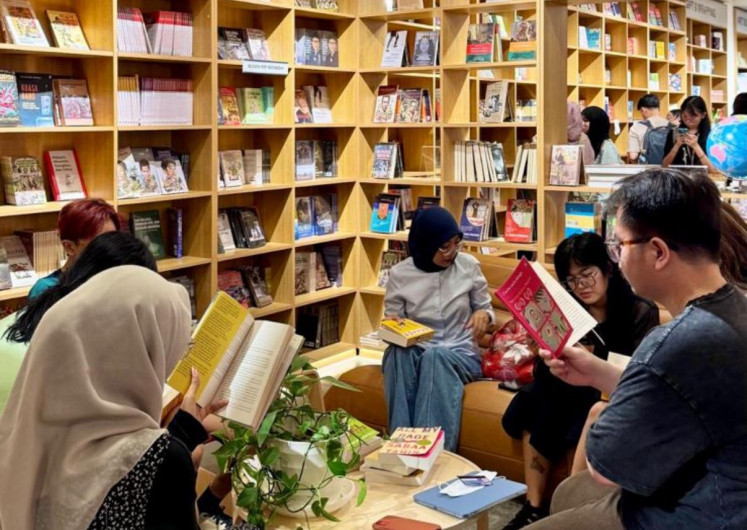Popular Reads
Top Results
Can't find what you're looking for?
View all search resultsPopular Reads
Top Results
Can't find what you're looking for?
View all search results‘Big challenges’: Choosing a nuclear career in Japan
Change text size
Gift Premium Articles
to Anyone
T
he 2011 Fukushima disaster made working in the nuclear industry unappealing for many Japanese students, but a new government push to revive the sector could start to shift the narrative.
It’s a welcome development for some young professionals who have experienced the stigma sometimes associated with their job.
Chisato, who declined to give her family name, studied chemistry and radiation biology as a student, seeking deeper understanding of the Fukushima disaster than what she had read in anxiety-inducing media reports.
“I just wanted to know the facts in a neutral way, especially about the effects of nuclear radiation on the human body,” the 28-year-old told AFP at a recent international conference for young nuclear professionals.
Still, when she applied for a job in 2017 at the operator of the stricken Fukushima plant, she was “surprised” when the interviewers asked what her parents thought.
She later learned that other candidates had pulled out of the recruitment process because their families disapproved.
She took the job, despite her parents’ concerns. “They asked me if I would work at Fukushima Daiichi, and I explained to them that it wouldn’t affect my health,” she said.
The 2011 disaster was triggered by a massive tsunami that overwhelmed generators at the Fukushima Daiichi plant.
The radiation released as a result forced people to be evacuated within a 20-kilometer radius around the plant. While no-go zones now account for around 2.4 percent of Fukushima prefecture, many people chose not to return to their former homes.
‘We must be motivated’
In the decade after the disaster, which was the world’s worst nuclear accident since Chernobyl, the number of atomic science students in Japan fell by more than a quarter, according to the education ministry.
But now, the government is hoping to revitalize the sector, aiming to reduce its reliance on imported fossil fuels and move toward carbon neutrality.
After working in Japan for three years, Chisato moved to Europe for a new job in the nuclear industry.
She returned home for the International Youth Nuclear Congress, a biennial forum for students and early career professionals in the sector.
The November event, the first held in Japan, convened in a symbolic location: Koriyama, in northeastern Fukushima. Several hundred Japanese and foreign attendees gathered to network and hear speeches on the industry’s future.
“We must be motivated,” enthused Kota Kawai, president of a Japanese youth network for the nuclear energy industry and a cochair of the congress.
“We have to express what we think, what we do, to others,” he told AFP at the event.
“After the Fukushima accident, students got interested in how we can overcome big challenges. Many students got interested in the decommissioning field.”
Kawai insists the drop in students entering the field shouldn’t be overinterpreted, as numbers vary each year, but acknowledges there are some gaps.
“The problem is, there are very few people who know how to construct nuclear power plants,” he said.
Carbon neutrality
Japan took all its nuclear reactors offline immediately after the 2011 disaster, and the majority remains out of action.
But with the nation facing sky-high costs for imported energy because of the war in Ukraine, Prime Minister Fumio Kishida has called for more plants to be restarted.
The government wants nuclear power to account for 20-22 percent of electricity production by 2030, up from around 7 percent now, as it targets carbon neutrality by 2050.
Hikari, a 28-year-old who also asked to be referred to by her first name only, works in the nuclear energy research department of a large Japanese conglomerate.
Her parents and friends never criticized her choice, she said.
However, it took “years” of discussions for her husband to come round to the idea.
“He might not agree 100 percent, but he now respects my decision and understands that I want to do my job properly,” she told AFP.
And while the government’s ambitions might be a boon for those in the industry, some are cautious.
Kyohei Yoshinaga, who works on electricity and energy innovation at the Mitsubishi Research Institute, a think tank, fears the enthusiasm for nuclear power could wane fast.
The 30-year-old, who began his university studies the same year as the Fukushima disaster, understands that “there is a need right now” for nuclear power.
But he fears public opinion could harden against the restart of nuclear reactors if energy prices fall again.
“The situation can change very easily and fast,” he said.











